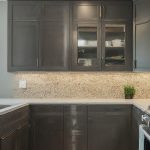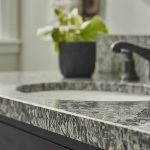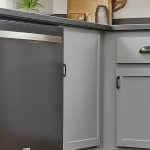Whether you’re planning a bathroom remodel, kitchen renovation, or sprucing up your outdoor space, stone mosaic tiles offer versatility and style. However, like any renovation material, they come with their own set of pros and cons. Mosaic tiles offer numerous benefits, including versatility in design, durability, easy maintenance, and the ability to add visual interest to any space.
Mosaic tiles also come with drawbacks, such as a challenging mosaic tiles installation process, higher cost compared to larger tiles, grout maintenance requirements, and limited suitability for certain areas of the home. Despite these cons, the unique aesthetic appeal and longevity of mosaic tiles make them a popular choice for homeowners who are seeking to enhance the look and functionality of their living spaces from professional experts like Granite Nations. In this blog, we’ll explore the pros and cons of mosaic tiles to help you make an informed decision for your next renovation project.
Exploring The Pros And Cons Of Mosaic Tiles
Let’s delve into some of the major pros and cons of mosaic tiles
Pros of Mosaic Tiles
Versatility in Design
Whether you’re aiming for a classic, contemporary, or stylish look, you can create stunning patterns and intricate designs that suit your aesthetic preferences. Mosaic tiles are available in various shapes, sizes, colors, and materials, such as glass, ceramic, porcelain, and natural stone, and they offer endless possibilities for creativity. If you’re looking to select the best granite for your project, consider factors such as durability, color variation, and veining patterns to ensure you find the perfect match for your space.
Durability and Longevity
Mosaic tiles are known for their durability and longevity, making them an excellent choice for high-traffic areas and spaces exposed to moisture. When properly installed and maintained, mosaic tiles can withstand the test of time without losing their beauty or integrity. Their resistance to water, stains, scratches, and fading ensures that your investment will last for years to come.
Easy to Clean and Maintain
Unlike other flooring or wall materials that require specialized cleaning products or frequent maintenance, glass mosaic tiles are relatively easy to clean and maintain. Their smooth surface makes them resistant to dirt and grime buildup, and regular sweeping and mopping with mild soap and water are usually sufficient to keep them looking pristine. Additionally, grout sealant can be applied to protect the grout lines from discoloration and moisture damage.
Adds Visual Interest and Texture
Mosaic tiles add visual interest and texture to any space, transforming ordinary surfaces into works of art. Whether used as an accent wall, backsplash, flooring, or decorative feature, mosaic tiles enhance the overall aesthetics of your home. Their reflective properties can also help brighten dark or small rooms, making them feel more spacious and inviting.
Cons of Mosaic Tiles
After the pros, here are the cons of mosaic tiles
Challenging Installation Process
While mosaic tiles offer numerous design possibilities, their small size can make them challenging to install, especially for DIY enthusiasts. Proper installation requires precision and attention to detail, as each tile must be individually placed and aligned to create the desired pattern or layout.
Higher Cost Compared to Larger Tiles
Mosaic tiles tend to be more expensive per square foot than larger tiles, primarily due to their intricate design and labor-intensive installation process. If you’re working with a limited budget, using mosaic tiles for large surface areas may be costly.
Grout Maintenance
The grout lines between mosaic tiles can be challenging to clean and maintain, as they are prone to staining, discoloration, and mold growth over time. Regular grout cleaning and sealing are necessary to prevent moisture penetration and keep the grout lines fresh and hygienic.
Not Suitable for All Areas
While mosaic tiles are suitable for most indoor and outdoor applications, they may not be ideal for all areas of your home. The intricate design of mosaic tiles may clash with traditional design aesthetics.
Conclusion
All in all, mosaic tiles offer a wide range of benefits and drawbacks, which should be carefully considered when planning your next renovation project. Their versatility in design, durability, and easy maintenance make them an attractive choice for homeowners looking to add style and personality to their spaces. By evaluating the pros and cons of mosaic tiles, it will surely help you to make an informed choice that aligns with your aesthetic preferences, budget, and lifestyle needs. Lastly, if you’re looking for professional service providers, you should choose none other than the leading Granite Nations.
Frequently Asked Questions
What are the cons of mosaic tiles?
Mosaic tiles can be challenging to install because of their small size, requiring more time and precision. They may also be more expensive compared to larger tiles, and the grout lines between the mosaic pieces can be difficult to clean and maintain.
What are the benefits of mosaic tiles?
Mosaic tiles offer several advantages, including versatility in design, as they come in various shapes, sizes, colors, and materials, allowing for creative patterns and layouts. They are also durable and resistant to moisture, making them suitable for use in bathrooms, kitchens, and outdoor areas.
How do you renovate a mosaic floor?
Renovating a mosaic floor involves several steps, including removing the existing tiles, repairing any damaged subfloor, and preparing the surface for the new tiles. Once the surface is ready, the unique mosaic tiles can be installed using adhesive and grout. Careful planning and attention to detail are essential to ensure a successful renovation, and enlisting a professional contractor like Granite Nations for more complex projects may be helpful.
What is the function of mosaic tiles?
Mosaic tiles serve both functional and aesthetic purposes in home design. Functionally, they provide a durable and waterproof surface, making them suitable for areas prone to moisture, such as bathrooms and kitchens. It can be used to create decorative accents, backsplashes, and feature walls, enhancing the visual appeal of any space.













